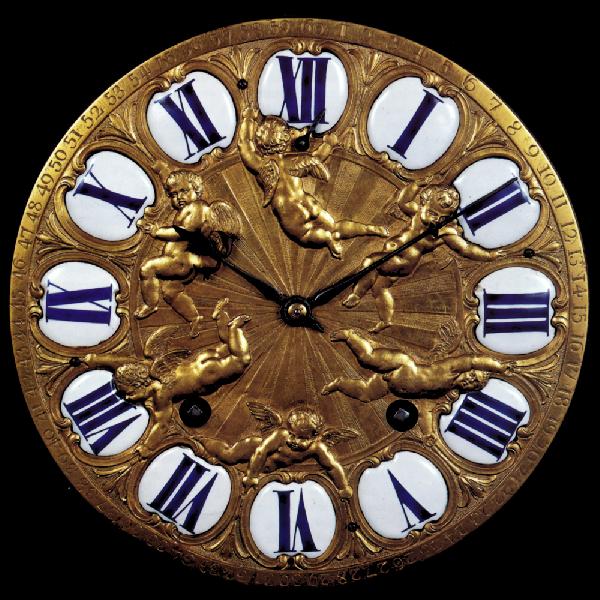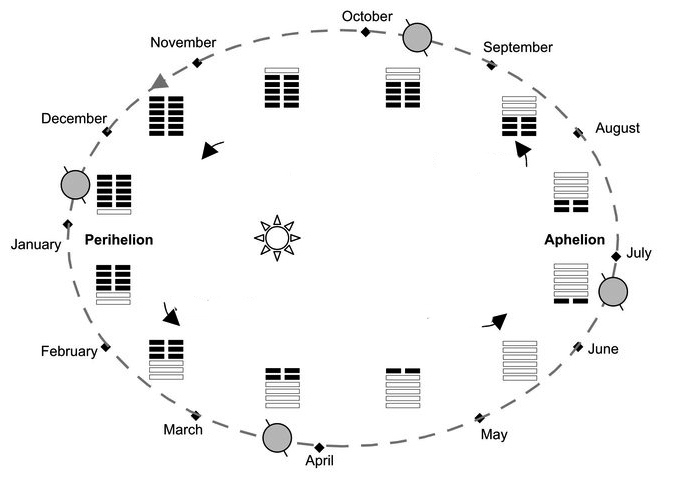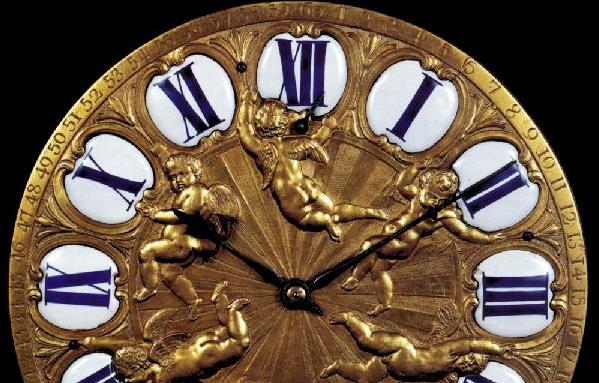Each of us has a limited time on this earth, a limited time in one’s body. Most people live their life without considering the reason for their life on this planet. Only when confronted with the death of a family member, or a person they love, do people think more deeply about the meaning of their life. Even then they are usually happy to forget about it as soon as possible.
Time is created by the human mind and is subjective, the result of associations. When one is busy at one’s job, occupied with many things, and identified with the job at hand, one is not aware of the passage of time. When one leaves one’s job to go home, one may feel that the day passed very quickly. On the other hand, when the machine feels bored, time seems to pass very slowly.
When the machine has nothing to identify with, one’s awareness is of time being slow, creating the negative emotion of boredom. In addition, most people feel that during one’s childhood, the days felt long. Whereas, as one gets older, the days seem to pass quicker and quicker. Because children have new experiences all the time, impressions enter more deeply. When impressions enter more deeply they affect a larger part of one’s being and the experience is richer. This affects one’s sense of time. Generally speaking, the older one gets, the more jaded one becomes, so impressions don’t enter one so deeply anymore.
Because one’s physical body ages, there is an objective aspect to the passage of time. One’s experience of the passage of time is a combination of one’s psychological state and the state of the physical body.
Time is breath. — Gurdjieff
In his book, The Theory of Celestial Influence, Rodney Collin lays out the experience of time in different cosmoses, based upon Gurdjieff’s thought of time being breath.

From this, one understands that the fundamental experience of time is determined by the cosmos that a being lives its life in. Therefore, after all, the experience of time is subjective. What experiences time is the lower self.
The passing of Now makes time,
The standing of Now makes eternity. — Boethius
The way to experience eternity is to change one’s awareness from the passing of time, or from having no awareness of time at all, to awareness of the moment. Because one soon forgets this kind of awareness and is pulled back into identification, esoteric traditions use a method to enable one to keep one’s focus on the present moment.
Similar to the Fourth Way authors, ancient Taoist texts allude to time as a metaphor for effort in this life, along with other Chinese traditions.
The meaning of time is that it enables the stages of growth to unfold in a clear sequence. The wise man is mindful at every moment and uses the six stages of growth as if they were six dragons on which he mounts to Heaven. — Commentary on hexagram #1, The Creative ䷀

Immortal riding a dragon, Ma Yuan (1160–1225)
One who mounts the truth of Heaven and Earth rides the changes of the six breaths and then roams amongst the boundless. — Zhuangzi
The six stages of growth refer to the inhalation and exhalation of six breaths. These do not refer to six breaths of the physical body but to six spiritual breaths. Esoteric traditions have called them the ‘Breath of Life,’ the ‘Yang Breath’ and the ‘True Breath.’
At the new moon’s light lies Return, the Yang Breath begins to spread through, going out and coming in without error. — Wei Boyang, Triplex Unity (Taoist text)
During these breaths one keeps one’s awareness on the present moment. They are called ‘stages of growth,’ because if one is able to sustain one’s awareness by ignoring upcoming thoughts, that awareness will deepen. If one is lucky, one’s higher self may awaken. In this state one can verify that the higher self is out of time, even though the physical body it is in remains subject to the law of time. Even when the experience is short-lived, it is out of time.
Alice: How long is forever?
White Rabbit: Sometimes, just one second. — Lewis Carroll, Alice in Wonderland
Esoteric traditions have symbolized these six yang breaths in many ways. One way that has been used often is by using the number twelve. Twelve reflects the inhalation and exhalation of these breaths.

The Chinese culture has a concept called the ‘Twelve Earthly Branches’ that divides time into twelve segments. These twelve divisions relate to the twelve double hours of the day, the twelve months of the year, and a period of twelve years. These three time cycles symbolize the ‘firing process.’ The firing process relates to a process of creating the inner spiritual fire of self-awareness.
The firing process concentrates a year into a month, a month into a day, a day into an hour, an hour into one moment, and one moment into one breath.. Those who understand this principle get the essence of the active and passive phases of the alchemical process. — Li Dao Chun, The Book of Balance and Harmony (Taoist text)
The schedule of circulating the fire follows twelve periods. — Bai Yuchan, Understanding the Mysteries (Taoist text)
Westerners are somewhat familiar with the cycle of twelve years in the Chinese zodiac. Each year matches with one of twelve animals, such as the monkey, rabbit, pig, rat, and ox. 2023 is the year of the Rabbit.
You may silently contemplate the Supreme Ruler and in twelve years’ time may wing your flight above. – The Secret of the Golden Flower
Through all the twelve hours it must never be forgotten; When success is won, all time will be put away. — Journey to the West, ch. 62
Whether a quote speaks about ‘twelve hours’, ‘twelve months,’ or ‘twelve years,’ the inner meaning is the same.
During the twelve periods of the day I do not attach myself to anything. — Huang-Po (9th c. Chinese Zen master)
In the time of the Yellow Emperor, there were twelve mirrors. A traditional explanation is that Heaven bestowed them on him. There were different procedures for using these twelve mirrors. One procedure was used for each of the twelve two-hour periods of a day. Another procedure was used for each of the twelve months of every year, and another for each year in a twelve-year cycle. – Shobogenzo, Dogen (Japanese Zen monk)

The Twelve Sovereign Hexagrams matched with the cycle of the twelve months of the year
Time is the Absolute’s gift to man to produce an astral body. ― Robert Burton
Walther Sell has been a student of the Fourth Way for decades. He is the author of a website on Oriental esoteric teachings, Inner Journey to the West. See other articles by Walther for the FourthWayToday.org: Walter Sell articles.
